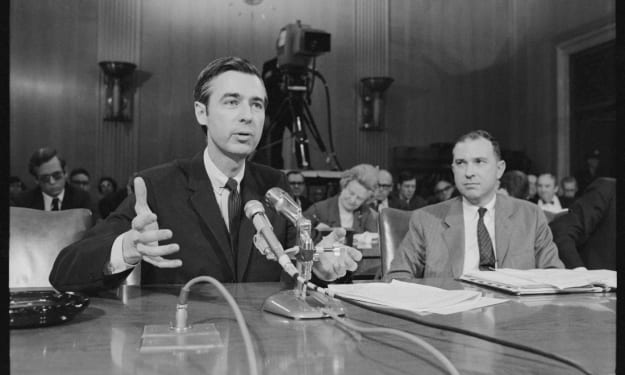
» KEY POINTS
- Legislative rules have not created an easy flow of discussion and movement of bills.
- Congress has instead unintentionally built weapons to be used against each other.
- The silence of the Constitution is hindering progress towards an effective Legislative Branch.

There is no doubt that Congress has become broken from the simple fact that so little legislation gets through; there is more time spent on using the made-up rules of Congress as weapons and technicalities than on organization and process; and that the items that do pass often are going through only on Party lines or a thin margin with the other Party involved. With few to no individually minded Congresspeople thinking of their constituents instead of their own Party politics, we are in an era of stall and go-go-go that ebbs only as one Party receives a small level of control of both chambers of Congress and the Presidency.
This is no way to govern.
While changes that could be made to the makeup of Congress and how Senators and Representatives are elected seem rather massive, they are relatively small tweaks to an existing process. At the end of the day, it is still a two-chambered legislature that has the same responsibilities, controls, and self-imposed rules that follows a process to shepherd a bill to a law. Yes, attempting to limit the control of one Party or another and get more voices in government is a top priority, but it is not enough by itself that it could force Congress to act reasonably and accomplish their jobs.
That is why more than tweaks are necessary here. Instead, we need to add whole additional sections to the Constitution to not just change who is having the conversations, but how they are having them and what the rules should be. The original Constitution was silent on most of the procedures of Congress, but we have already dealt with the long-term issues of Congress’s lack of oversight on that process. No, here we need to make sure we add language that forces Congress to be a thoughtful legislature and pay the price if they do not. In other words: Congress needs real accountability.

Crazy Idea: Actually Voting!
You have seen the headlines: The House of Representatives or the Senate has passed a piece of legislation and it is moving on to the other chamber. And then... nothing... absolutely nothing. There was great fanfare; this was an important piece of potential law that would cause a paradigm shift. Yet, despite all of this, it simply died and went away, never to be discussed again. What happened?
Article 1, Section 5, Clause 2 of the Constitution states:
Each House may determine the Rules of its Proceedings, punish its Members for disorderly Behaviour, and, with the Concurrence of two thirds, expel a Member.
And that is it. There are very few rules about how Congress is supposed to function and as such Congress has made up its own process over time. Whenever the news is talking about Congressional procedures and requirements, it is important to keep in mind that these are entirely fabricated by Congress and are inherently mutable. There is nothing in the Constitution that states how a bill is supposed to be presented, discussed, and passed on through each step of the system to become law. The few exceptions include Article 1, Section 7, Clause 1 that says, “All Bills for raising Revenue shall originate in the House of Representatives” and Clauses 2 and 3 that cover the bill moving from Congress to the President. These also cover how to deal with vetoes but are silent on any other part of the process.
Notice what is missing? There is not a mechanism to move legislation from one chamber to the other. That is where many of these Congressional rules have come into place and why legislation can die without ever being heard. It puts tremendous power in two peoples’ hands: The Speaker of the House and the Senate Majority Leader. Each has effectively complete control over the agenda in their chamber and if they decide that a piece of legislation should not be heard, then it will not be. This includes anything passed by the other chamber or even the concerns of the majority of the chamber. There is just no way past these two gatekeepers and thus they have vastly overarching power that was never granted via the Constitution.
It is also important to note that nothing in the Constitution nor the Senate rules give the Senate Majority Leader any type of power or control; that has only come about from tradition and precedent. From a Constitutional perspective, the President/President Pro Tempore of the Senate should be the one in charge, yet that position has become almost completely ceremonial.
Therefore, we have a problem where two people have a monopoly control over the country that was never granted to them and power over other legislators that are supposed to be their equals. It does not matter if a Representative is 25 years old and just elected or been serving for 50 years, they are 100% equal in the eyes of the Constitution. As such, we need to make some changes to the Constitution in order to rip back what never should have taken root in the first place and make sure Congress can function nominally.

The above piece is a mildly modified excerpt from New & Improved: The United States of America by J.P. Prag, available at booksellers worldwide.

Learn more about author J.P. Prag at www.jpprag.com.

An earlier version of this article appeared on Medium.
About the Creator
J.P. Prag
J.P. Prag is the author of "Aestas ¤ The Yellow Balloon", "Compendium of Humanity's End", "254 Days to Impeachment", "Always Divided, Never United", "New & Improved: The United States of America", and more! Learn more at www.jpprag.com.






Comments
There are no comments for this story
Be the first to respond and start the conversation.